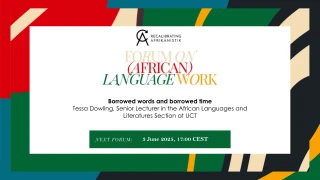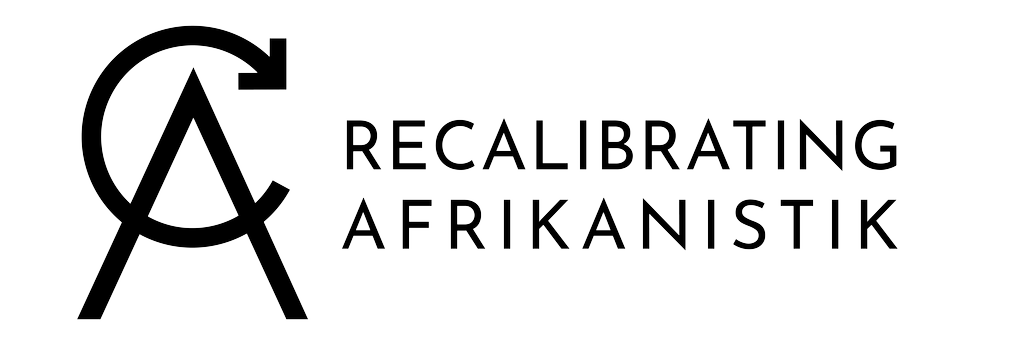RecAf Forum - Borrowed Words and Borrowed Time

In this session of the RecAf Forum on Language Work, Tessa Dowling, Senior Lecturer in the African Languages and Literatures Section at UCT, will present on "Borrowed words and borrowed time".
My presentation stems from two of my current preoccupations: borrowed words in Xhosa and teaching the Xhosa language to people over the age of 65. They may not seem connected, but I intend to demonstrate that they are. Xhosa, an agglutinating Bantu language, has many borrowed words, most of which are not listed in any dictionary. The Greater Dictionary of Xhosa contains about 8000 lexical entries, of which more or less 20% are borrowed. In that dictionary, words borrowed from Afrikaans and English (the main source languages) are phonologically adapted. Looking at which domains are most productive for loans provides some insights into the relationship between farm or business owners and their labourers in South Africa’s tainted history, e.g. ibhasboyi (boss boy = foreman), ukumuta = from Afrikaans moet = be obliged to do something). Some of the borrowings are whimsical, like ineva-neva – glossed as “imaginary place of happiness too ideal to exist in reality”, while others are practical, like ukuheleba (help) and unondilokhwe (from the Afrikaans onderrok - petticoat). In my experience, however, many of these listed borrowed words are no longer current, while thousands of others that are regularly used by Xhosa-speakers today don’t appear in any dictionary. As for my teaching, my more mature students sometimes hint that they feel obsolete, no longer relevant, but at the same time they express a sense of “If not now, then when?” and a gaiety of spirit that propels them into the learning process with an honesty about who they are (relatively wealthy, privileged whites) and a self-critical reflectiveness – even shame, often – at having lived in Africa for so long without learning an indigenous African language. They also share an insistence on always using the “correct” word, the one in the dictionary, even if it is borrowed – as long as it is ratified by inclusion in that “official” list. I love these students, and I love all these words, borrowed or not, listed or not, because they represent a freedom of movement, an easy cohabitation that I think reflects harmonious adaptation. I will argue in this presentation that what these students and many lexicographers fear most is the sin of causing offence by not using the right word, whereas the only offence they are truly guilty of is failing to listen.
Time: 3 June 2025, 17:00 CEST
The RecAf Forum takes place online via Zoom. To join, use the following credentials or click the link below:
Meeting ID: 616 6578 0875
Passcode: 482891
